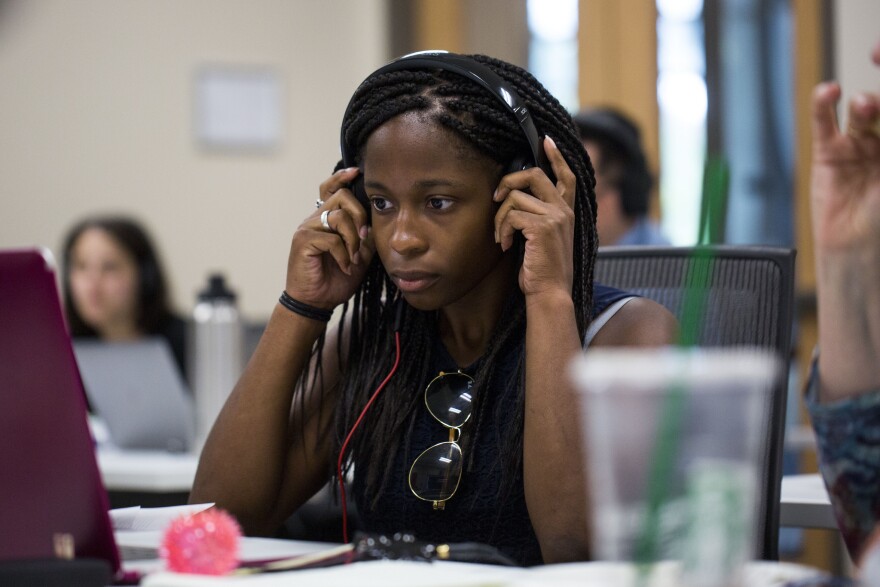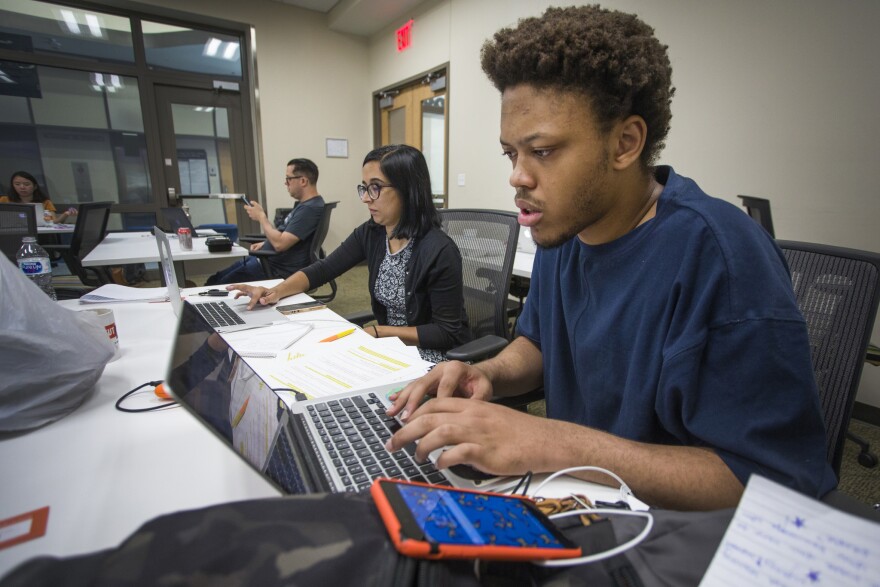After writing for publications such as Orange Magazine, Study Breaks, the Daily Dot and Austin Monthly, University of Texas journalism junior Onaje McDowelle considered himself a confirmed print journalist. However, after participating in a weeklong intensive to train the next generation of public radio journalists he discovered how his work could have a bigger impact by making it accessible to a broader audience through multiple media.
Last month, KUT and KUTX hosted the 2018 Next Generation Radio Project where eight college students and recent graduates from across Central Texas spent a week honing their digital journalism storytelling skills under the one-on-one mentorship of a working journalist or radio producer.
NPR’s Next Generation Radio Project aims to identify future talent and guide selected students and early career professionals into public media. The program has brought many journalists into the public radio fold since launching in 2000, including NPR “All Things Considered” host Audie Cornish and KUT News’ city reporter DaLyah Jones.
The theme for this year’s intensive was the greying of Austin. The assignment charged participants with finding and telling the stories of Austin seniors – through multiple platforms.
With the week’s theme in mind, Acacia Coronado, a journalism junior at the University of Texas with experience writing for the Austin American-Statesman, the Daily Texan and the Austin Chronicle, explored the story of immigrant artist Francisco Chavez Silva who created a mural at Casa Marianella, a migrant safe house in Austin.
“Coming from a print background, I had little knowledge of what to expect,” said Coronado. “I had done my research and taken the appropriate classes, but nothing could have fully prepared me for what it was like practicing radio journalism for a multimedia platform in the field. I had to learn-by-doing my way through new programs like Audition and audiogram making apps, while simultaneously managing what is usually my sole role – a written 600-word piece, and taking the accompanying photographs.”

For his story, McDowelle, who is majoring in journalism and African & African Diaspora Studies, focused on a history buff tracking down her Tejano roots while helping others do the same through her role as president of the Tejano Genealogical Society of Austin.
“The week gave us a well-rounded picture of what it’s like being a public radio journalist today, which entails writing and working with an editor, social media posts with accompanying audiograms, audio and video editing, not to mention learning how to regroup when an interview doesn’t go as expected and a story takes a different turn,” explained McDowelle.
“For me, the biggest takeaway was realizing the power of multimedia,” said McDowelle. “I always thought writing was good enough, but after this week, I realized that using different media to tell a story can impact more people in different ways. So I’ll continue to write, but I plan to consider more ways to tell people’s stories.”

Doug Mitchell, the founder and director of NPR’s Next Generation Radio project says, “There’s a way in which you listen to sounds, conduct interviews and produce stories and podcasts for public media that is different from everything else.”
“Doug’s comment gets to the heart of why we’ve been involved with Next Gen here at KUT, and why we’ll have them back next year,” says Hawk Mendenhall, director of content at KUT Radio. “To tell those different kinds of stories you have to cultivate a new generation of diverse storytellers and KUT wants to do its part in that process.”



